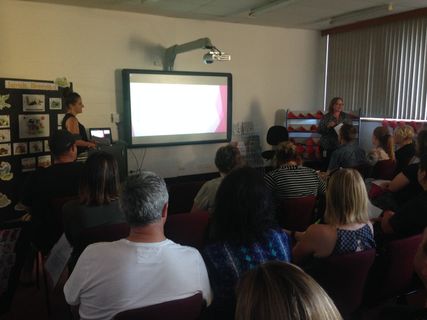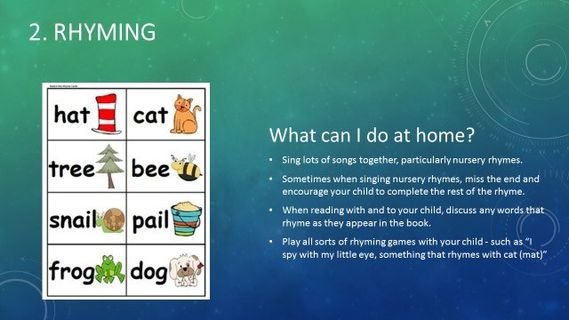K-2 parent literacy night
This week at the K-2 Parent Literacy workshop teaching staff focused on the development of reading in the Early Years and how parents play an integral part in this development.
Presentations by Early Years Teachers explored the following areas:
- identifying key Pre-Reading and Early Reading skills, and ways to support and enhance these through games and activities at home;
- how parents can help their children settle into a regular home reading routine;
- ideas for interacting with children to encourage the development of comprehension skills beyond the literal meaning to the inferred meaning;
- and tips for times when children are reluctant readers.
All Early Years teachers have their favourite authors and in class we are really focusing on reading aloud to our students.
Paul Jennings, Enid Blyton and Roald Dahl are several authors mentioned at the Workshop as the sources of our class novels this term. Children love being read to, and sharing stories they know well is an excellent way to encourage them to participate with confidence during allocated reading times each day.
The value of picture books is very important in the Early Years. Re-reading a favourite picture books enhances a child’s memory for rhyme and rhythm in words.
Mem Fox is a favourite Australian author of picture books and her ten commandments for reading aloud to children were highlighted and are an excellent guide for parents wanting to set up a stress free reading routine.
The workshop concluding with a short discussion on the importance of correct use of sounds and speech to the development of reading in the Early Years. Early Years teachers are experts at hearing unusual or incorrect speech patterns, so please if you have any worries at all about your child’s speech or reading development speak with the classroom teacher first.
Here are some tips for reluctant readers which were shared:
- Reading is meant to be fun and of interest so use your child’s interests to encourage them to read;
- Help out with words which are not decodable -50% of the English language cannot be sounded out;
- Write notes and leave them on pillows, in lunchboxes, in school bags- something short and humorous can really change a child’s attitude towards reading;
- Ask friends and relatives to send texts, emails, postcards and letters to your child so they can experience the joy of receiving them and writing back;
- Use a highlighter and newspaper to find words that are tricky for your child to remember- focus on one at a time
Mrs Jane Doyle, K-2 Coordinator of Teaching & Learning
 A Catholic School in the Salesian Tradition
A Catholic School in the Salesian Tradition

